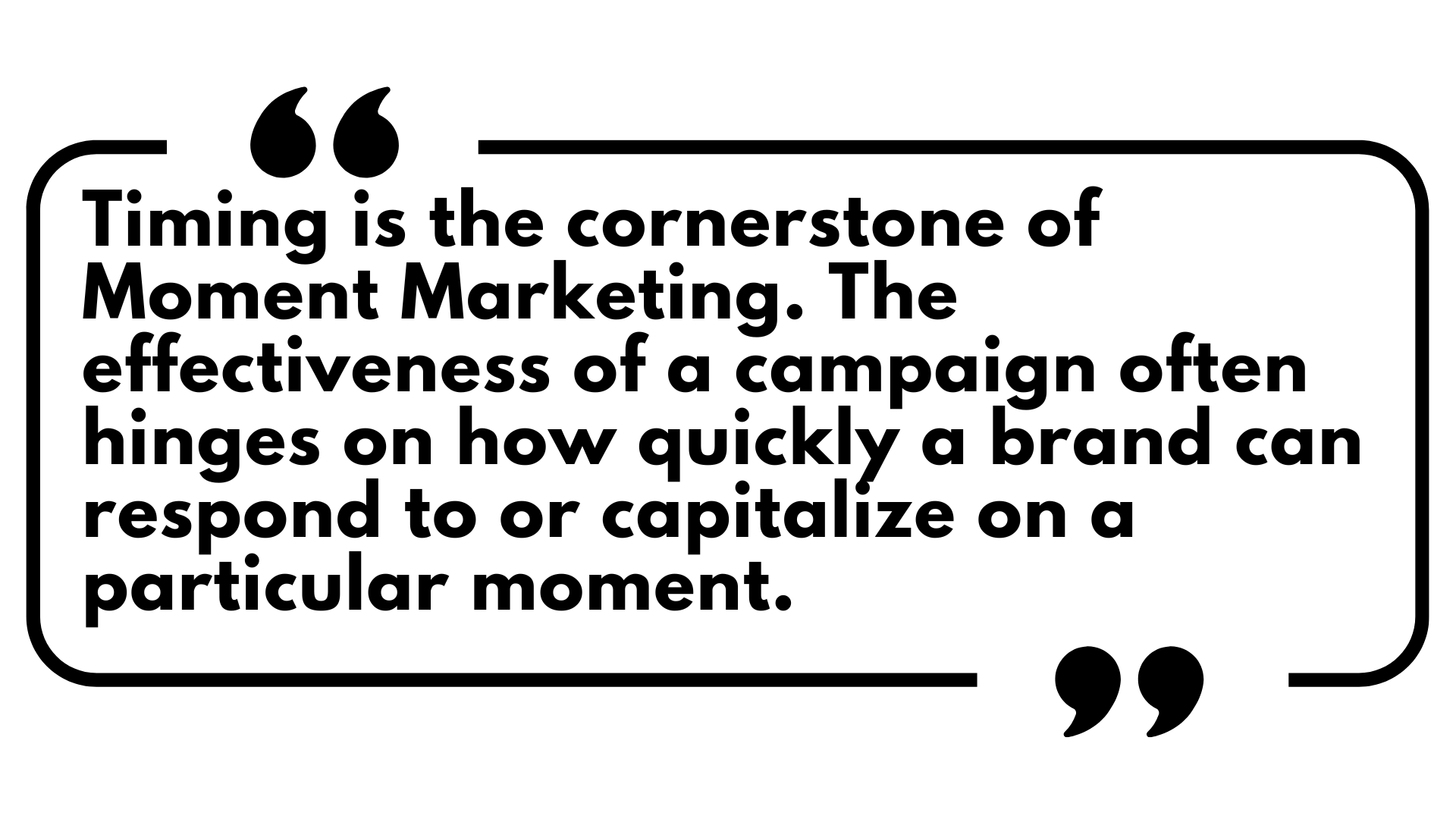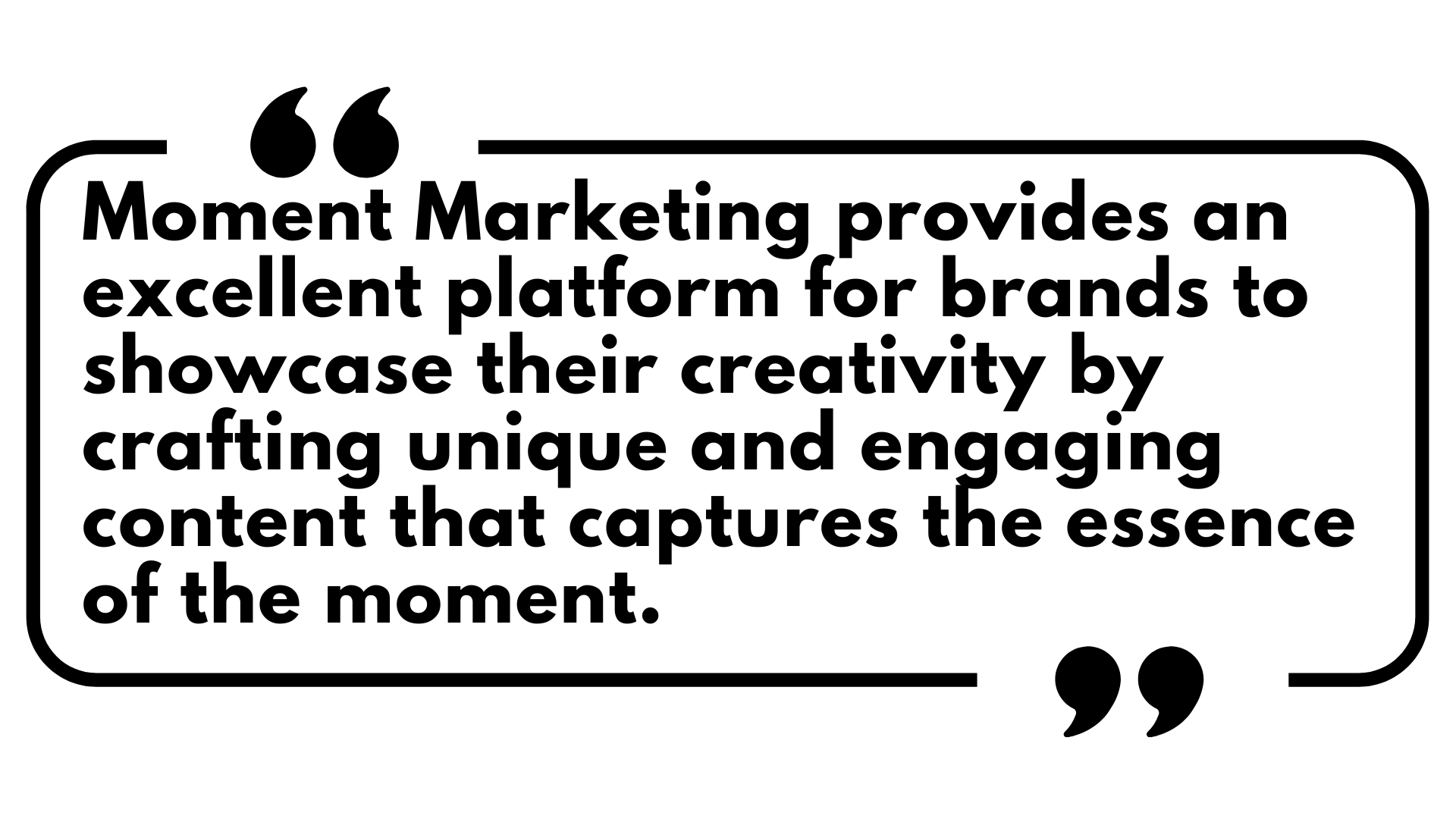
In today’s fast-paced digital world, where attention spans are short and information is abundant, brands are constantly looking for innovative ways to connect with their audiences. One such strategy that has gained significant traction is Moment Marketing. This approach focuses on leveraging real-time events, trends, and cultural moments to create relevant and engaging content that resonates with audiences.
Timing is the cornerstone of Moment Marketing. The effectiveness of a campaign often hinges on how quickly a brand can respond to or capitalize on a particular moment. A well-timed message can resonate deeply with the audience, leading to increased engagement and brand loyalty. A study by HubSpot found that real-time marketing campaigns are 60% more effective in driving engagement than pre-planned campaigns.
For example, during the 2013 Super Bowl blackout, Oreo’s “You can still dunk in the dark” tweet became one of the most iconic examples of Moment Marketing. The tweet was simple, timely, and perfectly aligned with the event, leading to thousands of retweets and massive media coverage. This example highlights how brands that can quickly adapt and respond to live events can create memorable and impactful campaigns.
 2. Cultural Relevance and Relatability
2. Cultural Relevance and RelatabilityTo truly connect with audiences, brands must ensure their moment marketing efforts are culturally relevant and relatable. This means understanding the values, emotions, and sentiments of the target audience and aligning the message accordingly. A recent example is Nike’s response to the Black Lives Matter movement. By swiftly creating content that supported the cause, Nike was able to align its brand with social justice, resonating with its audience and reinforcing its brand values.
A McKinsey study found that 64% of consumers are more likely to engage with brands that address social and cultural issues . This underscores the importance of aligning Moment Marketing with the broader cultural context and ensuring that the messaging is both authentic and empathetic.
In the crowded digital space, creativity in ‘how we want to say what we want to say’ (that too quickly) is critical to standing out. Moment Marketing provides an excellent platform for brands to showcase their creativity by crafting unique and engaging content that captures the essence of the moment. A great example is Spotify’s “Wrapped” campaign, which uses user data to create personalized year-end summaries. This campaign not only leverages the trend of year-end reflections but also provides users with personalized content, making it highly engaging and shareable.
A 2022 report by Nielsen revealed that campaigns with strong creative elements are 30% more likely to be remembered by consumers. This highlights the need for brands to continuously push the boundaries of creativity to capture and retain audience attention.

Also, sharing some (not too old) Global Examples of Successful Moment Marketing
Burger King’s “Moldy Whopper” Campaign (2020): In a bold move, Burger King released images of its Whopper decaying over time to promote its shift to preservative-free ingredients. The campaign was timed perfectly with growing consumer awareness around health and food quality, making it a powerful statement that resonated globally.
Coca-Cola’s Share a Coke Campaign (2021): Coca-Cola capitalized on the personalization trend by printing people’s names on bottles. The campaign was a huge success, creating a personal connection with consumers and encouraging them to share their experiences on social media.
Heineken’s #SocialiseResponsibly (2020): During the COVID-19 pandemic, Heineken launched this campaign to encourage responsible socializing. The brand’s timely response to global lockdowns and the shift to digital socializing resonated with audiences and reinforced its commitment to social responsibility.
First, I thought I will call the below points as nuances, but then these are not. These are rather simple way of thinking around the approach. While the potential of Moment Marketing is immense, it is essential for marketing leaders to consider the following simple aspects to avoid potential pitfalls:
To conclude this piece, I’d say Moment Marketing offers brands an incredible opportunity to connect with their audiences in real-time, making them more relevant and relatable.